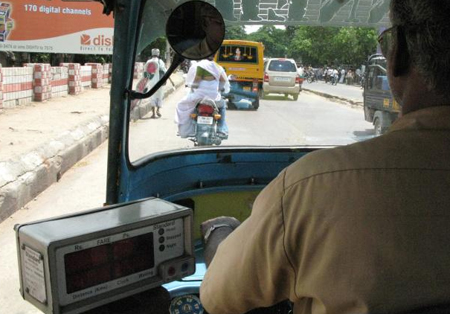 Bangalore, Dec 18: The Regional Transport Authority (RTA) on Tuesday increased the minimum autorickshaw fare to Rs 25 from Rs 20 for the first 1.9 km. For every subsequent kilometre, passengers will have to shell out Rs 13 as against the existing Rs 11.
Bangalore, Dec 18: The Regional Transport Authority (RTA) on Tuesday increased the minimum autorickshaw fare to Rs 25 from Rs 20 for the first 1.9 km. For every subsequent kilometre, passengers will have to shell out Rs 13 as against the existing Rs 11.
The new fare will come into effect from December 20. The RTA approved the hike after a consensus was reached between officials, traffic police and drivers’ unions.
For the waiting time, the first five minutes will incur no additional charges, but for every 15 minutes of waiting, the commuter will have to pay Rs 5.
At present, a commuter has to pay Rs 20 for every one hour of waiting time.
Speaking to media, G C Prakash, Deputy Commissioner, Bangalore Urban District, who is also the chairman of RTA, said: “The decision to hike fares was taken amicably, though the autorickshaw drivers’ unions were pressing for Rs 26 as the minimum charge and Rs 14 for subsequent kilometre. Finally, we were able to reach a consensus on the Rs 5 hike for the first 1.9 kilometres. The fare was last hiked almost 18 months ago.
The auto unions have been holding demonstrations demanding a fare hike due to increase in LPG prices and inflation in general. After taking into consideration several parametres, finally the present quantum of hike was decided.





Comments
Add new comment